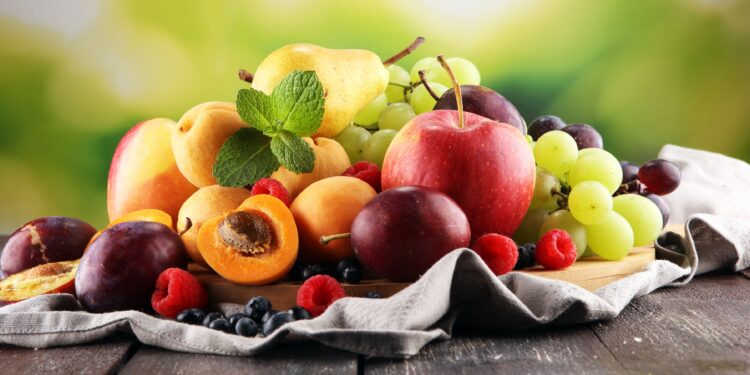High consumption of fruit sugar can pain stomach and diarrhea
Who integrated in his food plan a lot of fresh fruit and vegetables supplies your body with important vitamins and minerals and protects against diseases. However, a high consumption of fruits can also harm the health. Because excessive consumption of fructose can stomach and intestinal complaints trigger and the risk for gout and being Overweight increase.

Fruit sugar (fructose) occurs naturally in fruits and vegetables and is used in many foods as a sweetener. Who consumed too much of this sugar can damage his health. The consumer points Central on your website.
Fruit sugar for the production of food
In many fruits and vegetables, fructose provides a natural way for Sweet. But also in the production of food such as dairy products, cereals, and some sweets often fruit sugar or fruit sugar syrup is used instead of crystal sugar.
This has to do with the fruit sugar in the production is cheaper and a ten to twenty percent sweeter than conventional household sugar.
In addition, fructose covers the unpleasant taste of sweeteners and enhances the fruity Aroma in food – for example, in low-calorie products.
The digestive system is not created for the processing of too much fructose
Fruit sugar has a positive Image, but the human digestive apparatus is not created for the processing of too much fructose.
According to the consumer about one third of the fruit can the consumption of more than 25 grams of sugar per day is not tolerated, and suffers from a fructose intolerance with stomach and intestinal complaints such as stomach pain and diarrhea.
But also for healthy persons, and in particular for children more than 35 grams per meal can be stuck in two glasses of Apple juice – too much.
Some drinks contain up to 40 grams of fruit sugar per Liter. And even a yogurt container can contain a low proportion of Sugar is still 15 grams of fructose.
Increased risk for various diseases
In addition, research suggests that increased fructose consumption promotes the development of Obesity, reported the consumer service Bavaria in the KDFB e. V. in a post.
Fruit sugar, irrespective of Insulin metabolism. Insulin signals satiety to the body. The fructose reduction in insulin secretion is therefore substantially less than in the breakdown of sucrose, the saturation signal remains off.
In addition, there is evidence that high fructose consumption promotes the formation and storage of fat in adipose tissue and liver.
An increased intake of fructose is also associated with the emergence of the metabolic syndrome. The metabolic syndrome refers to the simultaneous Occurrence of Overweight, lipid metabolic disorders, hypertension, and insulin resistance.
And fructose can cause in the blood, higher concentrations of triglycerides and LDL-Cholesterol. As well as the metabolic syndrome this blood carry fats to the formation of atherosclerosis (hardening of the arteries) and increase the risk for cardiovascular disease.
Furthermore, the removal of fructose contributes to increased formation of uric acid and thus can increase the gout risk.
Five servings of fruits and vegetables per day
As the consumer declared in a Central, hidden behind labels on packaging such as “less sweet”, “less sugar” or “sweet fruit” is often a high Fructose content.
Low-fat dairy products can also contain fruit sugar. And also on mineral water with fruit flavor, Wellness and diet soft drinks, this is true.
The experts recommended five portions of fruit and vegetables daily – one in the Form of juice are healthy and completely fine. However, a fruit sugar absorption in addition, it should be avoided whenever possible.
The professionals suggest to look for when shopping, whether or not fructose, a fruit sugar, or fructose-glucose syrup listed in the ingredients list of products.
Fruit juices should only be drunk in moderation – a maximum of one glass per day, for example, as a spritzer, with one-third juice and two thirds water.
And soft drinks and Wellness drinks, the fruit contain sugar, you can, according to the consumer safely on the shelf. (ad)
